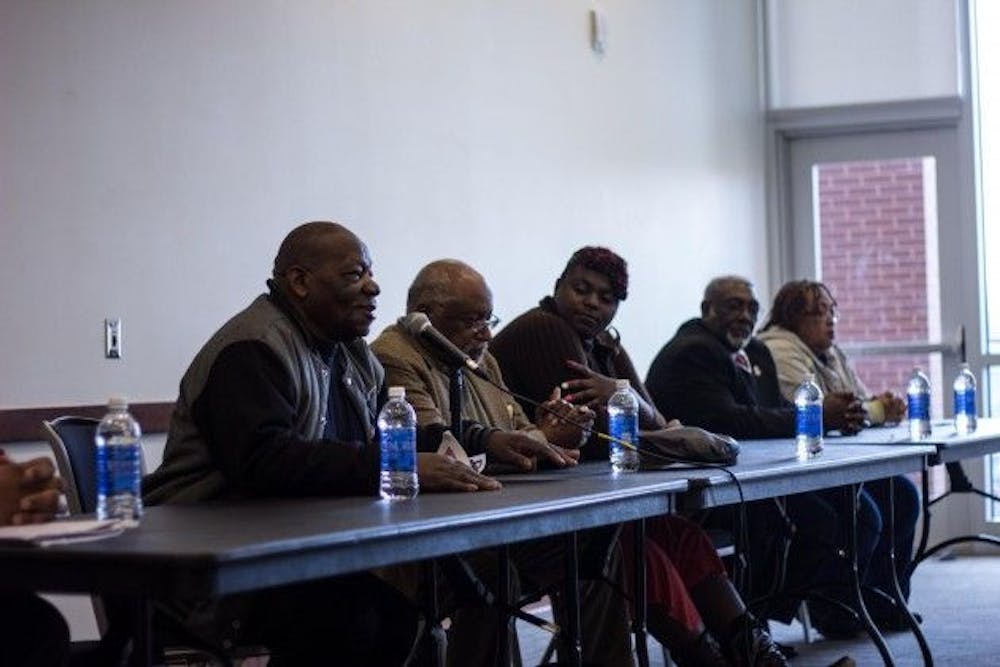The University of Memphis held the "Race and Labor in Memphis, 1968-Present" panel to discuss the importance of unionizing and living wages on Tuesday.
Co-chairperson of the Progressive Student Alliance Brandon Shaw, 24, described the purpose of the panel as bridging the gap between oppressed people, referring to present-day unions and the sanitation strikers of 1968.
Joseph Wyatt, current Memphis Sanitation Department employee and member of the union, said witnessing unfair terminations of coworkers and dehumanizing comments sparked his decision to get involved.
"When you get tired, and everybody else gets tired, something has to be done," Wyatt said.
He was one of the six people who made up the panel.
By Wyatt's side sat Alvin Turner, Baxter Leeche and Coby Smith who were sanitation strikers in 1968.
Turner recalled the original union of 1960.
"Thirty-three men went on strike (and) 33 men were fired," Turner explained.
According to him, it took eight years to get it completely organized, and, on Feb. 13, 1968, about 1,300 men walked off the job to collectively fight for a living wage, something they had not previously known.
"(We) didn't know where the next meal was coming from," Turner continued.
Ashley Cathey, a 26-year-old McDonald's employee, was also on the panel.
She described herself as its younger voice.
"I just want all the younger people to stand up for themselves-don't be afraid," Cathey added.
Cathey admitted that $7.25 an hour is not worth it when, according to her, McDonald's is making $5.5 billion a year.
"You think we don't deserve $10, $12 or $15 with the union? They can spend $2 million on advertisement, but they can't help us take care of our families," Cathey vented.
Much like her elders, Cathey said that her generation must have the same bravery.
"Y'all had a lot of courage. We have to have courage. These people came from a long way to get to where they are," she said.
She stressed the importance of not repeating history and urged the younger generation to make a change in less than eight years.
Thelma Rimmer, the vice president of Memphis' chapter of the United Campus Workers, elaborated on Cathey's statement.
"We have families and kids-it's been hard," Rimmer, who has been a custodian worker here at the University for seven years, said.
She compared the current-day living wage goal of unions with Dr. Martin Luther King's dream of equality.
"Nothing has really changed," she continued.
She also attributed poor health to the minimal wages, citing stress as a direct result of not being able to pay bills.
Like Rimmer, Leeche compared the two time periods.
"We've come a long way, and we have a long way to go," Leeche said.
He stated that young people should make it a priority to get an education in order to avoid falling into unfair worker's traps like he did.
Smith said Memphis is important to the movement of unions. He was a member of the Black Power group The Invaders and helped organize student involvement in the sanitation strike of 68.
He advised this generation to take full advantage of the opportunities that have been placed before them. He recalled segregated unions when he was younger, noting that the times have indeed changed.
"It's not about race anymore," he said.
While Turner acknowledges that many fear standing up, it is the only action that will bring change for this generation.
"A day didn't pass where I wasn't afraid," Turner, who was supporting a family during his strike, said. "In order to succeed, that's what they have to do."




